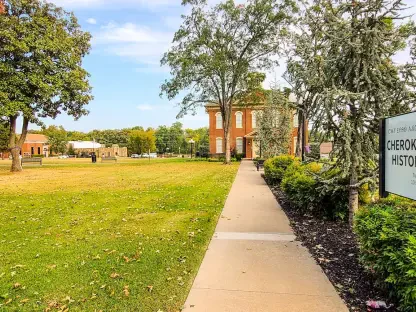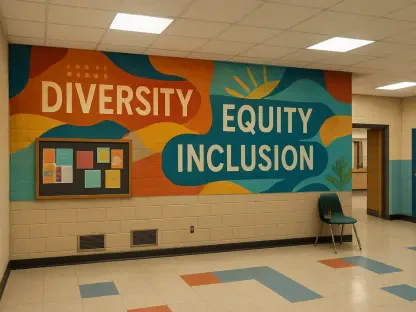In a rapidly evolving political landscape, the intersection of higher education and governmental influence has sparked intense debate, particularly with recent proposals that tie federal funding to specific institutional policies, challenging the very foundation of academic autonomy. Imagine a scenario where colleges and universities, long regarded as bastions of independent thought and research, must alter their admissions processes, curricula, or even speech policies to secure essential financial support. Such conditions, proposed through initiatives like a compact for excellence in higher education, raise critical questions about the balance between public accountability and institutional freedom. As stakeholders from academia to policymakers weigh in, the discussion centers on whether higher education should conform to politically driven mandates or maintain its historical role as a driver of merit-based progress and community engagement.
The Historical Partnership Between Government and Academia
A Legacy of Merit-Based Collaboration
The relationship between the federal government and higher education has long been rooted in a shared commitment to advancing national interests through research and education, rather than political leverage. Federal grants, often awarded through competitive processes by agencies like the National Science Foundation (NSF) and the National Institutes of Health (NIH), have historically supported groundbreaking work in science, technology, and medicine. These investments are designed to position the nation as a global leader in innovation, focusing on the merit and potential impact of proposed projects. Unlike discretionary handouts, such funding reflects a partnership built on trust and mutual benefit, enabling universities to tackle complex challenges from public health crises to technological advancements. This system has allowed academic institutions to maintain independence while contributing significantly to societal progress, a balance now at risk with proposals that introduce conditional funding tied to specific governmental agendas.
Risks of Politically Driven Funding Shifts
Recent proposals to link federal funding to compliance with particular policies on admissions, tuition, or curriculum represent a stark departure from this established model of collaboration. Such conditions threaten to undermine the autonomy that allows universities to prioritize academic integrity over political pressures. Higher education associations, including prominent bodies like the American Council on Education, have voiced strong opposition to these initiatives, arguing that they erode the merit-based nature of federal support. The concern is that tying funding to governmental dictates could stifle innovation by forcing institutions to align with short-term political goals rather than long-term societal needs. This shift risks transforming universities into tools of policy enforcement rather than centers of independent thought, a change that could diminish their role as drivers of national progress and global competitiveness in critical fields.
Higher Education’s Public Responsibility and Community Impact
Beyond the Classroom: Civic and Economic Contributions
Colleges and universities extend their influence far beyond the education of students, actively engaging with local and national communities in meaningful ways that underscore their public responsibility. Through initiatives like community service programs, partnerships with local organizations, and public events such as lectures and concerts, institutions foster civic engagement and cultural enrichment. For example, at some liberal arts colleges, students contribute tens of thousands of hours annually to community service, while faculty collaborate with nearby schools to enhance educational opportunities. Additionally, sustainability efforts often align with municipal goals, supporting initiatives like zero-waste programs. Economic impact studies further reveal that colleges can inject hundreds of millions of dollars into local economies, supporting thousands of jobs and generating significant tax revenue. These contributions highlight the tangible benefits that higher education brings to society, independent of political mandates.
Balancing Autonomy with Accountability
While the community contributions of higher education are substantial, the scrutiny faced by these institutions today cannot be ignored, especially as public trust in academia wavers amid rising costs and perceived disconnects. The challenge lies in demonstrating that colleges are not isolated entities but active participants in building stronger communities and a better future. This involves transparent communication about their economic and civic roles, as well as a commitment to addressing societal needs through research and education. However, accepting funding conditions that dictate internal policies risks compromising the very independence that enables such contributions. The consensus among many academic leaders is that a productive partnership with the government should respect institutional missions and shared goals, rather than impose restrictive conditions. This balance is crucial for maintaining the integrity of higher education while fulfilling its broader obligations to the public.
Reflecting on a Path Forward
Lessons from a Contested Debate
Looking back, the debate over linking federal funding to specific policy compliance revealed deep tensions between governmental oversight and academic freedom. Higher education leaders and associations stood firm against proposals that threatened to reshape the merit-based foundation of federal support, viewing them as direct challenges to institutional autonomy. The resistance was grounded in a historical understanding of the government-academia partnership, which prioritized national progress over political agendas. At the same time, colleges demonstrated their commitment to public service through substantial economic contributions and civic engagement, countering narratives of detachment. This period of contention underscored the importance of maintaining a system where funding supports innovation and education without strings attached to transient political priorities.
Charting Future Collaborations
As the dust settled on these discussions, the focus shifted to forging a sustainable path forward that upholds the core values of higher education while addressing public expectations. A key step involves fostering dialogue between academic institutions and policymakers to establish funding models that reinforce shared objectives, such as advancing research for societal benefit. Universities must also continue to showcase their community impact through data-driven reports and public outreach, ensuring that their role as active contributors is widely recognized. Additionally, exploring alternative funding sources could reduce reliance on federal support, providing greater flexibility to resist restrictive conditions. Ultimately, the goal remains a partnership that respects academic integrity and prioritizes long-term national interests, setting a precedent for collaboration that benefits both higher education and the broader society.









